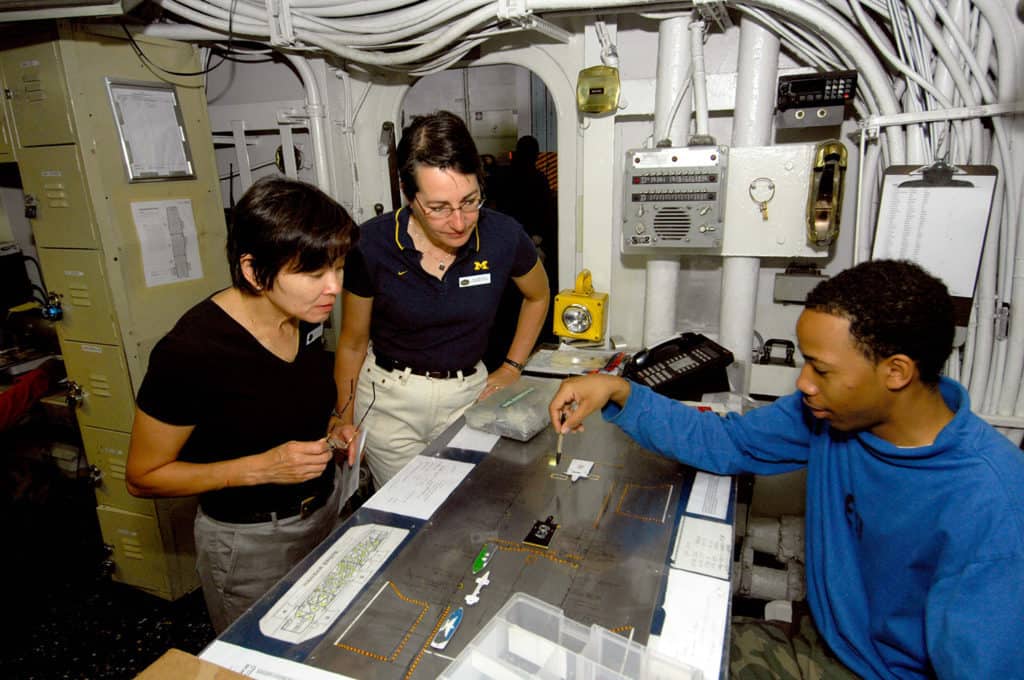ROBIN WHITE
NAVSEA

Director for Surface Ship Design and Systems Engineering, Naval Sea Systems Command
UM NAME BSE ’82, UM NAME MSE ’97
FIRST JOB OUT OF UNDERGRAD:
My first job was as a Naval Architect at the Portsmouth, Virginia office of J.J. Henry, a naval architecture and marine engineering company supporting the local shipyards and the United States Navy. It exposed me to a variety of projects, from certifying floating drydocks to doing structural calculations for the design of navy oilers.
MOST MEANINGFUL CAREER PROJECT:
Leading the technical response to fleet emergencies is one end of the spectrum, and establishing the early stage design feasibility and processes for new Navy ships is at the other end. I think the most meaningful was the engineering response after the attack on the USS Cole. At the time I was responsible for stability, and within hours was evaluating the flooding on the ship to determine its overall status, as well as provide recommendations on where the crew should focus de-watering efforts. I was also involved in the assessment of moving the ship out of port, loading it onto a heavy lift ship, and taking it home around the horn of Africa. There were many engineering challenges to work through along the way, and the entire effort had national attention.
HOW DO YOU USE YOUR DEGREE IN EVERYDAY LIFE?
My degree has provided the solid logic-based and analytical framework for all the positions I’ve held. As a naval architect and marine engineer, it has given me a broad-based understanding of engineering, in a focused area that I love – ships and the sea. As I’ve grown from doing the computations to managing and then executive leadership of an engineering organization, I’ve found that logic-based thinking is key to asking the right questions and making informed decisions. Ship design is all about understanding the boundaries and influences from a systems perspective, with a mindset that focusses on evaluating and reducing risk, both in the ability to achieve desired performance and in meeting safety objectives.

WHY ARE YOU PASSIONATE ABOUT YOUR WORK?
The NAVSEA mission resonates with me – and my role of contributing to the national security of our country by designing, building, and repairing the ships we rely on to be present around the globe. Making the Navy better, helping the Sailors be successful, and helping our allies as well. I enjoy working with engineers every day – they are passionate about their technical positions and have an incredible wealth of knowledge in their areas of expertise. I find that I’m constantly learning from everyone around me as we resolve the inevitable problems of operating complex systems in a harsh ocean environment.
ADVICE FOR STUDENTS:
My advice is to go into NAME! I have had a wonderful career with NAME as the rock it stands on. Once in the program, give yourself a break and don’t expect your grades to always line up with what you were used to in high school, just keep learning. Take advantage of job experiences during the summers. There are many ways to apply your engineering knowledge in the marine industry. Don’t neglect to develop your skills in persuasive communication – both written and oral – that will be critical to making an impact with your good ideas.